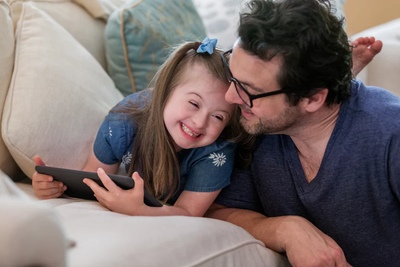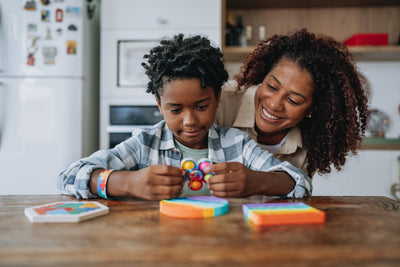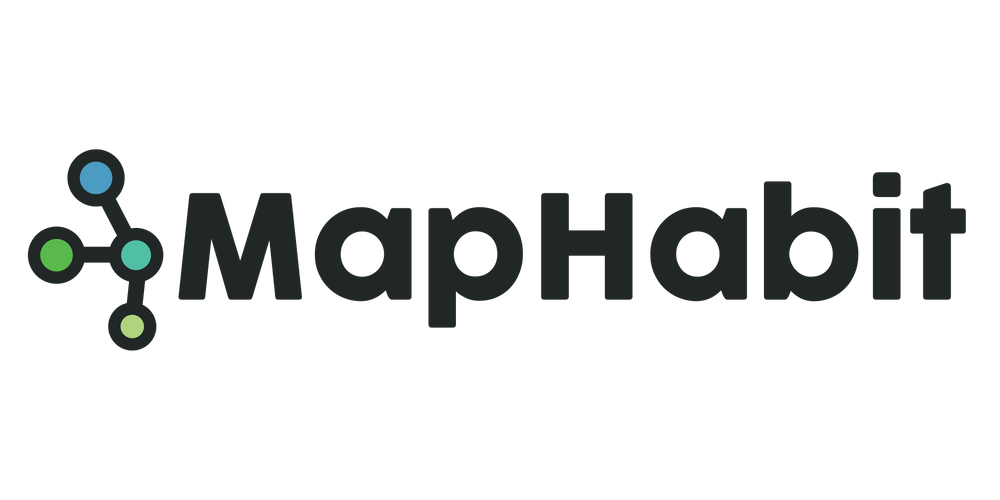Solutions and Services That Provide Personalized Cognitive Support
MapHabit’s patented solutions provide tailored support for care partner and individuals with intellectual and developmental disabilities (IDD), Alzheimer’s Disease and related dementias (ADRD), traumatic brain injuries (TBI), and neurodiversity/autism. Our full range of cognitive support products are specially designed with each individual in mind.
Tablet Ultimate - Spark
This sensory kit helps individuals with intellectual or developmental disabilities, TBI, and autism/neurodiversity improve motor skills, balance, and coordination. It includes:
iPad with MapHabit app featuring our library of 1,000+ maps to get you started.
One-on-one support during the account set-up and training periods.
Comprehensive Sensory Tools: Provides fidgets, putty, stress balls, and more for sensory regulation.
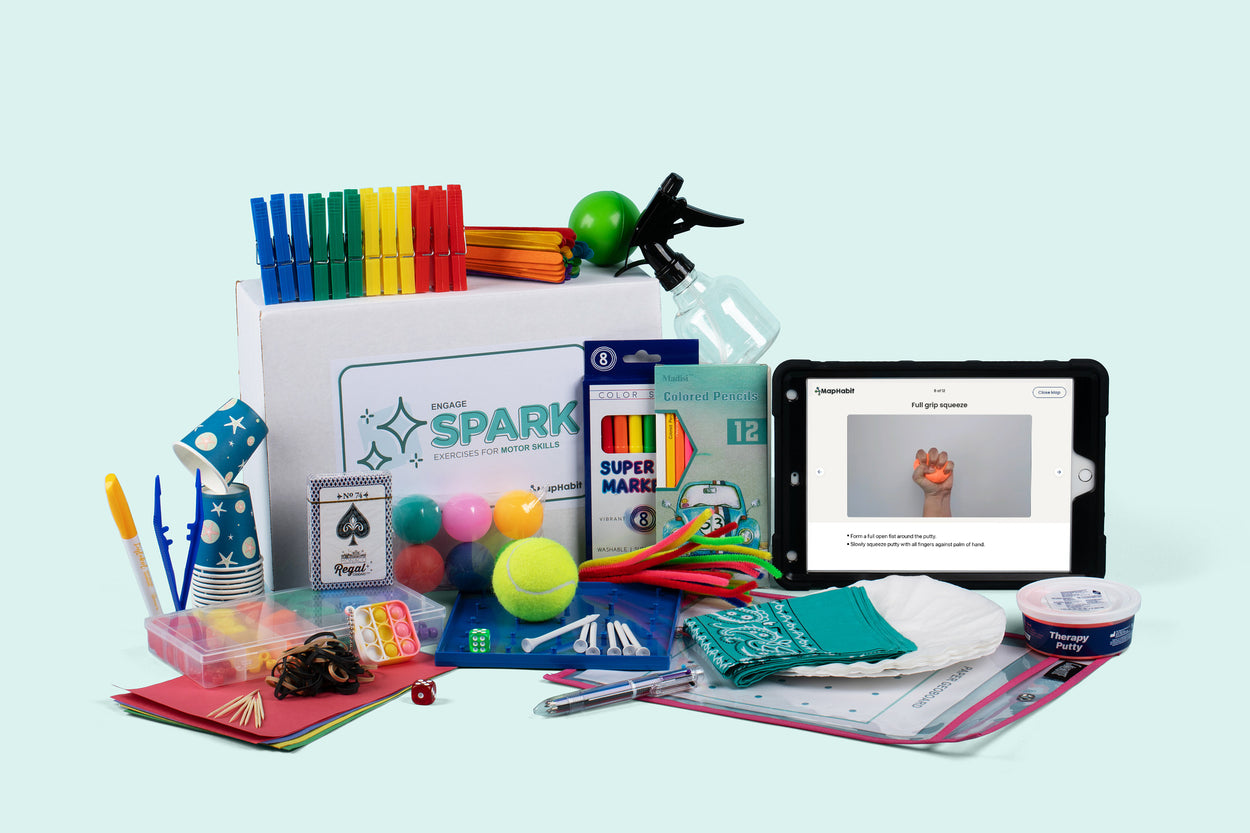
Tablet Ultimate - Shine
This evidence-based activity kit helps individuals with early-stage dementia engage the mind, body, and spirit.
It includes:
iPad with MapHabit app featuring our library of 1,000+ maps to get you started.
Shine activity kit with functional strength exercises, brain games, stress relief tools, and more.
One-on-one support during the account set-up and training periods.
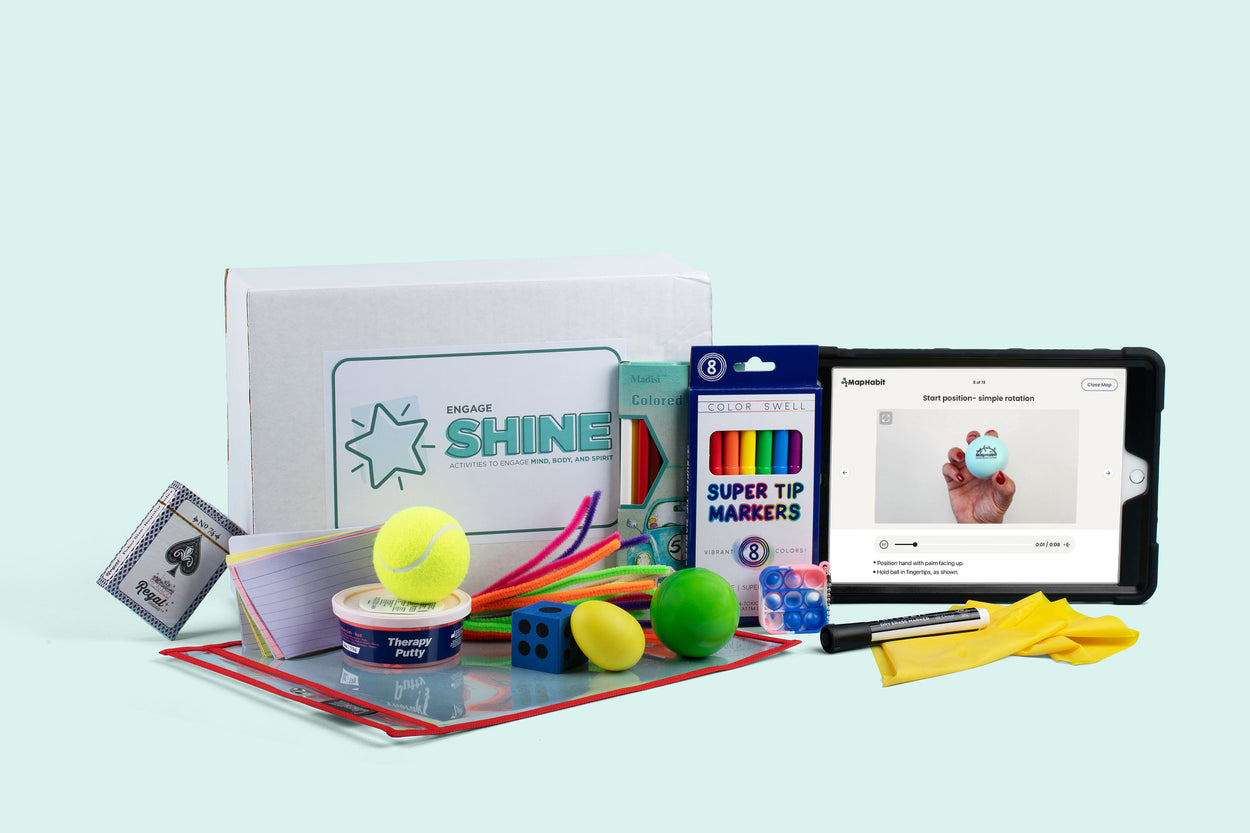
Tablet Core
Get a jump-start on your account set-up with our tablet-inclusive bundle. You’ll get a MapHabit tablet, 12-month app subscription, and tailored onboarding to help get you started.
Tablet Pre-Loaded With the MapHabit App
Initial Training & Set-Up
12-Month App Subscription & Support
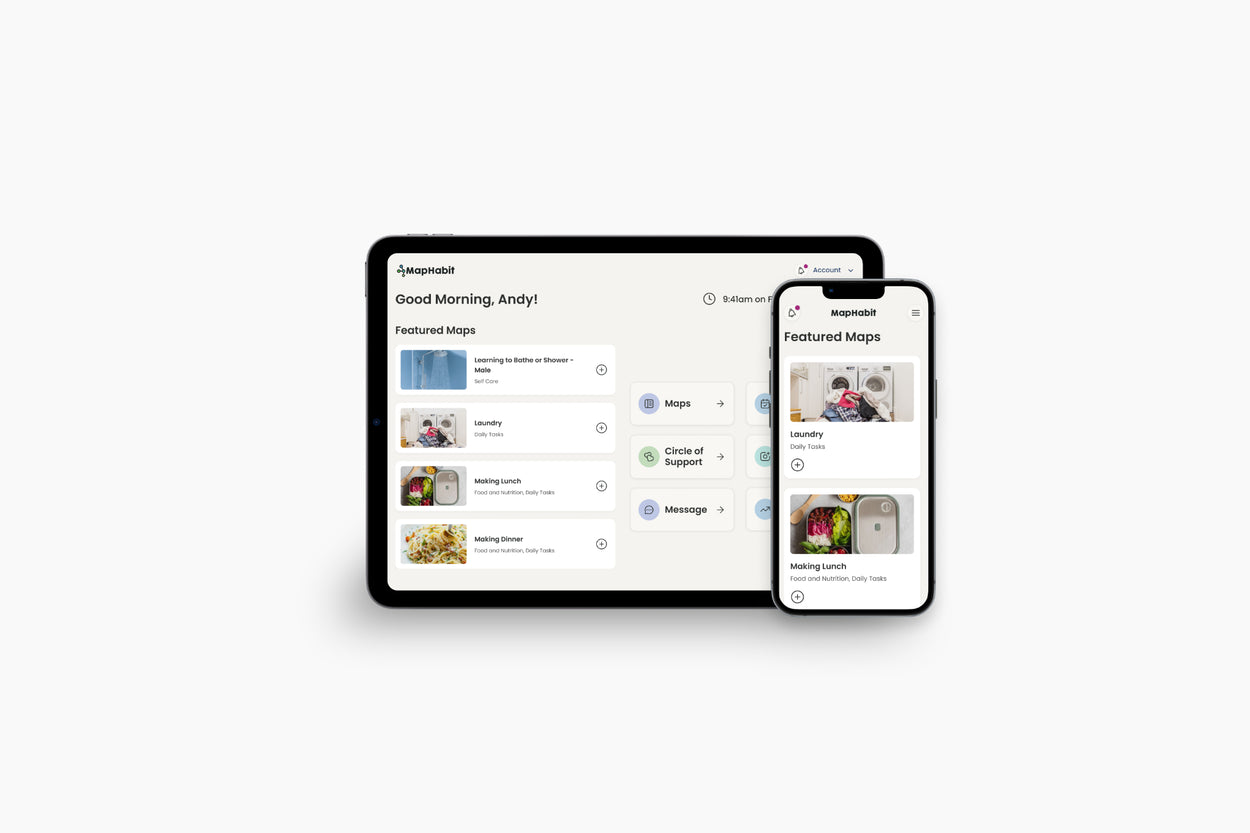
FAQ
Product FAQs
Review our customers’ most frequently asked questions, or schedule a time to talk with our team by clicking the button below.
MapHabit is grounded in evidence-based practices that support cognitive health and daily functioning. Our approach utilizes visual mapping and step-by-step guidance to reinforce memory, enhance routine learning, and support individuals with cognitive impairments through structured activities.
MapHabit supports a range of conditions that affect cognitive and daily functioning, including Alzheimer’s Disease and related dementias, Traumatic Brain Injuries, Intellectual & Developmental Disabilities, ADHD, autism, and any other individuals needing additional cognitive support.

